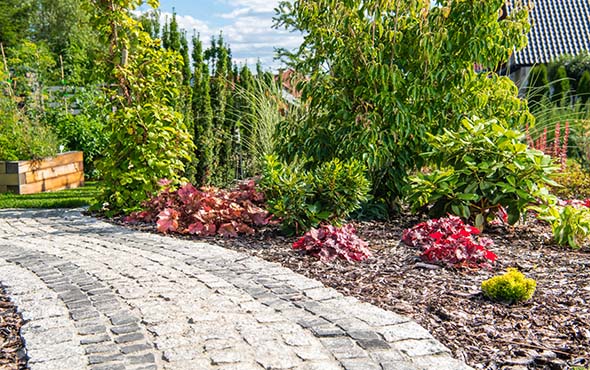In the pursuit of a lush, green lawn, pest control is an essential aspect that often gets overlooked. However, the traditional methods of pest management, heavily reliant on chemicals, pose significant risks to the environment and human health. As a leading lawn care provider, Patriot HLC understands these concerns and advocates for eco-friendly pest control methods. This article explores the sustainable alternatives that keep your lawn pest-free while ensuring the safety of your family and the planet.
The Risks of Conventional Pest Control
Conventional pest control methods typically involve the use of synthetic chemicals. While effective in eradicating pests, these substances can linger in the environment, contaminating soil and groundwater. Moreover, their overuse has led to increasing concerns over health implications, ranging from short-term issues like skin irritation to long-term effects such as endocrine disruption and cancer. These risks highlight the need for safer, more sustainable pest control solutions.
Benefits of Eco-Friendly Pest Control
Eco-friendly pest control offers a myriad of benefits. Firstly, it minimizes environmental impact, ensuring that the ecosystems around our homes are preserved. Secondly, these methods are safer for families, particularly children and pets, who are more susceptible to the adverse effects of chemical pesticides. Lastly, sustainable pest control contributes to the long-term health of lawns, promoting a balanced ecosystem where beneficial organisms thrive.
Eco-Friendly Pest Control Methods
Several eco-friendly pest control techniques can be employed for effective lawn care:
- Biological Controls: This involves using natural predators or parasites to control pest populations. For example, introducing ladybugs to combat aphids.
- Organic Pesticides: Derived from natural sources, these pesticides are less toxic than their chemical counterparts. Neem oil and diatomaceous earth are popular options.
- Natural Deterrents: Certain plants, like marigolds and lavender, can repel pests naturally when integrated into your landscaping.
- Cultural Practices: Simple lawn care practices, such as maintaining proper soil pH and mowing at the right height, can naturally deter pests.
- Physical Barriers: Using row covers or nets can physically keep pests away from plants.
Each of these methods offers a sustainable way to manage pests, ensuring your lawn remains healthy and vibrant.
Patriot HLC's Approach to Eco-Friendly Pest Control
At Patriot HLC, our approach to pest control is rooted in our commitment to environmental stewardship and public safety. We incorporate eco-friendly methods into our services, tailoring solutions to each lawn's specific needs. Our team, leveraging military discipline and precision, applies these sustainable practices to ensure effective pest management without compromising on safety.
Tips for Homeowners
As a homeowner, there are several steps you can take to support eco-friendly pest control:
- Encourage Beneficial Wildlife: Attract birds and beneficial insects that feed on common pests.
- Practice Good Hygiene: Regularly remove debris and standing water to prevent pest breeding grounds.
- Companion Planting: Grow pest-repelling plants alongside your regular plants.
- Regular Lawn Maintenance: Keeping your lawn healthy is the first line of defense against pests.
Case Studies or Success Stories
Patriot HLC has numerous success stories where our eco-friendly pest control methods have revitalized lawns across northeast Dallas. From restoring balance in a pest-ridden garden to maintaining sprawling, healthy lawns, our approach has consistently proven effective and safe.
Conclusion
Eco-friendly pest control is more than a trend; it's a responsible approach to lawn care. By choosing sustainable methods, you not only protect your lawn but also contribute to the well-being of your family and the environment. Patriot HLC is proud to lead this charge, offering services that align with our ethos of dedication, precision, and community. Contact us today to learn more about our eco-friendly pest control solutions and how they can benefit your lawn.








